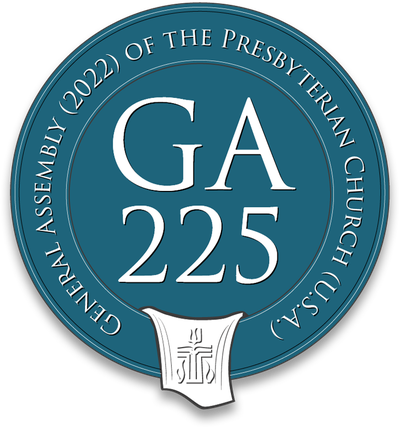Items related to health, safe space and benefits — including the Board of Pensions — are the purview of the Health, Safety and Benefits Committee, which meets June 23-26 at the Presbyterian Center in Louisville, Kentucky, as part of the 225th General Assembly.
David Ammons of Olympia Presbytery will moderate the committee. Doris Evans of Presbytery of Southern Kansas will serve as vice-moderator. Along with eight information items, the committee’s business items can be seen here.
Two of the items, HSB-02 and HSB-04, concern furthering the denomination’s mental health ministry. HSB-02, from the Winnebago Presbytery, commends, among other entities, the nascent Presbyterian Mental Health Network “for its grassroots work to begin connecting congregations, mid councils and seminaries engage in mental health ministry …” HSB-04, which comes from the Presbyterian Mission Agency Board, has eight recommendations, including one to extend funding for the staffing of mental health ministry for an additional two years as well as funding for mental health industry grants, “prioritizing creative and innovative projects based on capacity-building.”
HSB-03, a resolution from the Advocacy Committee for Women’s Concerns, directs the Committee on Mission Responsibility Through Investment (MRTI) to continue its work toward “one of its foundational goals” of advancing women’s rights through shareholder advocacy as part of the Reproductive Health Shareholders Campaign. It also directs the Stated Clerk to send the resolution to every mid council and congregation “in order to encourage Presbyterians to promote and advocate for reproductive justice in their specific context for women and persons assigned female at birth.”
HSB-05 is the consideration of the report of the Survivors of Sexual Misconduct Task Force, which writes that “we believe the PC(USA) needs to make a few constitutional changes that would help to ensure our denomination is safe and sacred space for those most vulnerable in our midst.”
HSB-06, which comes from the Family Leave Policy Task Force, addresses ministers’ terms of call, defining “family leave” as including leave following the birth or adoption of a child, to provide care to an ill or disabled family member, and to heal following a loss or tragic event. HSB-07 is an overture from the Hudson River Presbytery. It says that the minister’s call shall include paid family leave of at least 12 weeks for the life events described in HSB-06.
HSB-08, a recommendation from the Advisory Committee on Social Witness Policy, directs the Presbyterian Mission Agency to create a new policy and study resource around mental health concerns, rather than trying to update “Comfort My People,” a policy statement dating back to 2009. Such a study resource “would be beneficial to include information on how to create sermons, Bible studies, Sunday school classes and discussion groups around mental health concerns,” ACSWP said.
HSB-09 comes from the Special Committee to Study the Reformed Perspective of Christian Education in the 21st Century. “The collective trauma from the pandemic, systemic racism and community polarization calls the church to a renewed urgency to give witness to the transforming love of Christ among us,” the committee’s rationale states. “These realities, combined with the ongoing changing cultural location of the mainline church in the United States, the competing priorities for the time of our members, the general disappearance of a rhythm of Sabbath in many of our communities, a growing number of families who feel ill-equipped to teach and model their Christian faith at home, the declining fiscal resources for many of our congregations, and more, means the PC(USA) must adapt its education and formation models — maintaining its essential function in shaping lifelong disciples but with new tools, strategies and imagination for today and tomorrow.”

